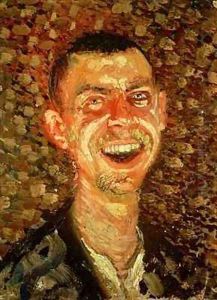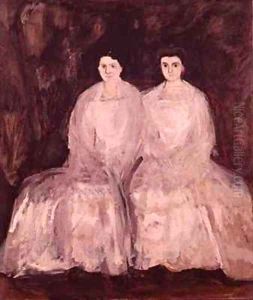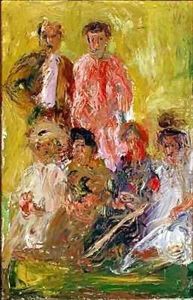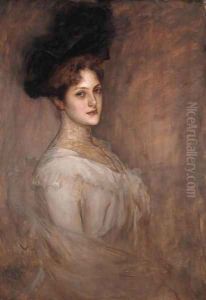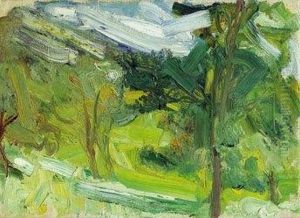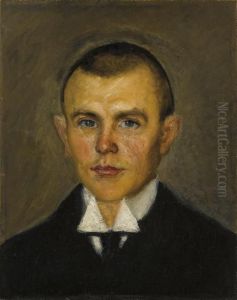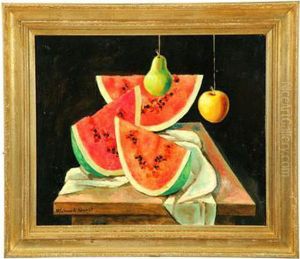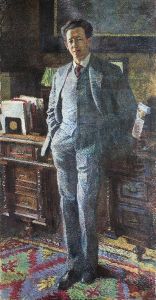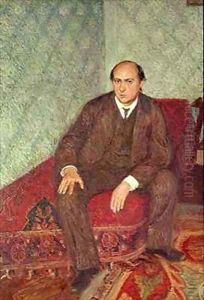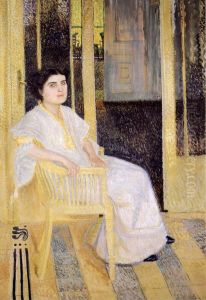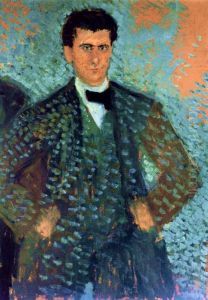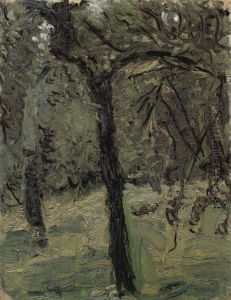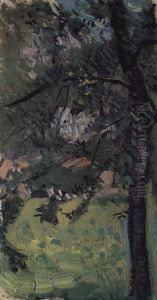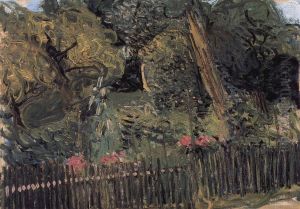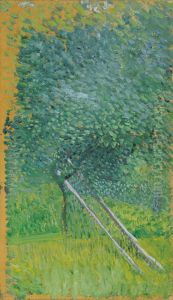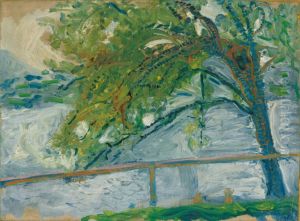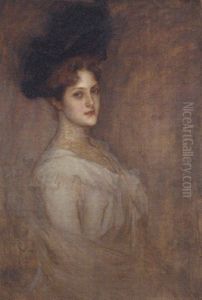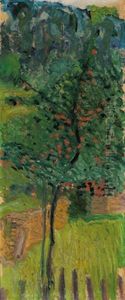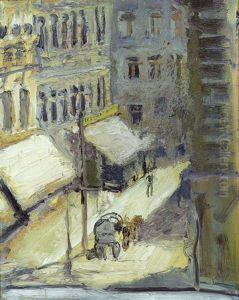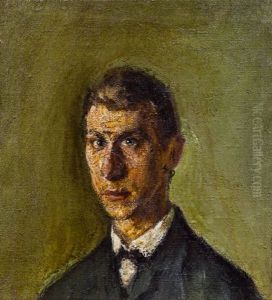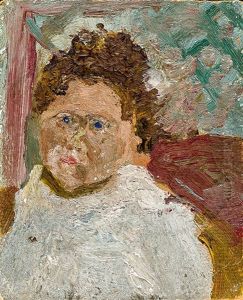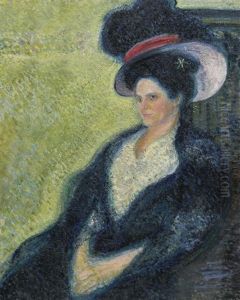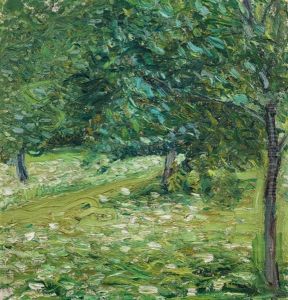Richard Gerstl Paintings
Richard Gerstl was an Austrian painter and draughtsman known for his emotional intensity and early exploration of self-portraiture and expressionism. Born on September 14, 1883, in Vienna, Austria, into a wealthy and bourgeois family, Gerstl was a pioneer in the field of psychological portraiture, predating the Expressionist movement that would come to dominate early 20th-century art in Austria and Germany.
Gerstl's artistic journey began at the Academy of Fine Arts Vienna, where he enrolled in 1900. However, his relationship with the academy was fraught with disagreements and dissatisfaction, leading to his eventual departure. Gerstl sought a more personal and innovative approach to painting, which led him to explore the depths of human emotion and the complexities of the human psyche through his art.
Despite his innovative approach, Gerstl struggled to gain recognition during his lifetime. He was not part of any artistic group or movement, which further isolated him from the Viennese art scene. His work was deeply personal, often featuring intense and raw self-portraits that revealed his inner turmoil and psychological distress.
Gerstl's life took a dramatic turn when he developed a close relationship with the composer Arnold Schoenberg and his wife Mathilde. The relationship eventually led to a scandalous affair between Gerstl and Mathilde, causing a rift between Gerstl and Schoenberg. The affair ended disastrously, contributing to Gerstl's emotional and psychological decline.
Tragically, Richard Gerstl's life was cut short when he committed suicide on November 4, 1908, at the age of 25. His death was a result of his personal despair and professional isolation. It was only after his death that Gerstl's work began to be recognized for its groundbreaking approach to expressionism and portraiture. Today, Richard Gerstl is celebrated as a significant, though largely overlooked, figure in the development of modern art. His work is admired for its raw emotional intensity and its pioneering role in the expressionist movement. Despite his brief career, Gerstl's contributions to the art world continue to influence artists and scholars alike.
